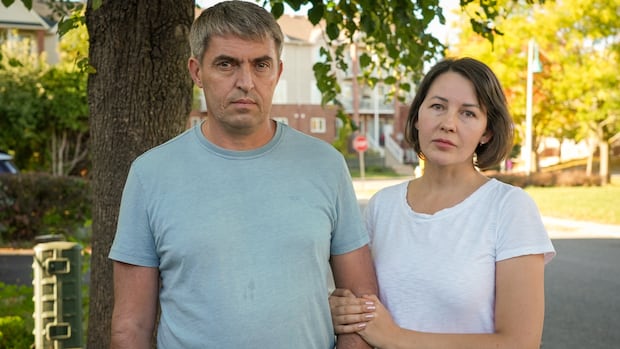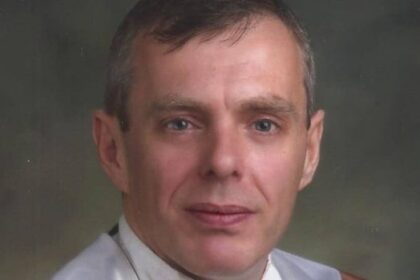Unprecedented 50-year processing time shocks immigration applicants, lawyersOlha Kuskho and her family applied for permanent residence in June after fleeing the war in Ukraine. She’s one of thousands of applicants under the humanitarian and compassionate program, now facing decades-long processing times, according to updated numbers from Canada’s Immigration Department. Processing times for Canadian immigration applications have reached unprecedented lengths — up to 50 years under some permanent residency programs — stunning applicants and lawyers who say the system has become unviable.”We were shocked,” said Olha Kushko, whose family fled Kyiv and settled in Ottawa in 2023 under the Canada-Ukraine Authorization for Emergency Travel (CUAET), a special measure introduced after Russia’s full-scale invasion.”It doesn’t have any sense. I don’t know how it’s possible, so I can’t believe it,” Kushko said.Families who recently applied for permanent residence (PR) under Canada’s humanitarian and compassionate stream face waits of 12 to 600 months, according to the new immigration minister’s May 2025 “transition binder”.Other economic immigration programs list similar waits: Up to 108 months (nine years) for the caregivers pathway.Up to 228 months (19 years) for the agri-food stream.Up to 420 months (35 years) for entrepreneurs under the startup visa stream. Lawyers say these skyrocketing processing times published by Immigration, Refugees and Citizenship Canada (IRCC) are unheard of, and some fear mass cancellation of applications if the Liberal government passes its strong borders bills, which would grant the minister sweeping new powers.Asked if the government plans to do this, a spokesperson for Minister Lena Metlege Diab told CBC: “We can’t presuppose any future policy decisions.”Kushko is left wondering what it all means for her family.They applied under the humanitarian and compassionate program in June. The program allows people who don’t qualify for other immigration streams to apply for PR based on such considerations as hardship and the best interests of children.Olha, Danylo, Sasha and Ihor Kushko sit on their couch in the family’s Ottawa home. They fled Ukraine during the ongoing war and recently applied for permanent residence in Canada. (Mathieu Deroy/CBC)According to IRCC’s online processing time checker, people who applied in June 2025 under the humanitarian stream face a wait time of “more than 10 years,” with about 38,100 people ahead of them. “People applying now should be processed in: More than 10 years,” according to the website, which was updated Oct. 9.Kushko said her family’s anticipated wait time was estimated at about two years when they first applied.”I just hope that it’s a big mistake,” said Kushko, whose youngest son has autism and is adjusting well to his school in Ottawa. “He just doesn’t want to hear about moving. He [becomes] scared, and almost cry when he hears that he will move from here,” she said. “He loves this place so much.”Adding to her anxiety, the couple’s work permits are set to expire next spring. Kushko said the prospect of returning to war-torn Ukraine is bleak.”We don’t have a place to return,” she said. “I don’t want to lose my son[s]. I want to keep [them] alive and happy.”The Kushko family poses for a selfie in Kyiv where they lived before Russia’s full-scale invasion of Ukraine. (Submitted by Olha Kushko)Others who’ve applied under the humanitarian stream are also worried, but hoping it won’t actually take as long as indicated.”We are not extremely pessimistic, but we are still upset and very frustrated,” said a spokesperson from Hong Kong Pathway Alliance, a group of about 20 applicants living in Canada. CBC has agreed to withhold their names due to their fear of political persecution and for the safety of their remaining family in Hong Kong.They’re questioning if Canada is moving away from its humanitarian principles.”Severe negative impact is indeed happening … affecting people’s daily life,” said the spokesperson, adding some applicants have been refused extensions to their work permits, and face financial hardship and even family separation.Lawyers demand answers”If this is true, if these processing times are accurate, it’s shocking,” said Claire Houkayem, an Ottawa immigration lawyer with A&C Law Firm. “My clients are fully panicked.”Houkayem is demanding clarity and transparency from IRCC as her clients now apparently face decades of living in limbo. They might as well just come out and say, ‘We don’t want to process them.’- Claire Houkayem, immigration lawyer”Honestly, I’m hoping that this is really a glitch,” she said. “I’ve never in my life seen [processing times] for 10 years. It’s not even reasonable at this point.”They might as well just come out and say, ‘We don’t want to process them.'””It makes no sense, and how did it get to this point?” asked Steven Meurrens, a Vancouver immigration lawyer with Larlee Rosenberg law firm.”For it to just balloon to 50 years is unheard of in the Canadian immigration context,” he said about the humanitarian path.Meurrens said IRCC showed a “lack of good faith” when it invited millions of people to Canada “with no clear path for permanent residence.”A spokesperson for Immigration Minister Lena Metlege Diab told CBC News the numbers published in the minister’s transition binder were not a mistake. (Adrian Wyld/The Canadian Press)Meurrens suspects the government is planning to cancel applications en masse in some streams should the Liberals’ border security bills, including one introduced this month, pass.”I think it is becoming increasingly likely,” Meurrens said. “Part of why they may be being quiet about it is because the solution involves Bill C-12, and they know the panic and reaction that will cause.”Such broad cancellations have happened before. In 2012, the government wiped out immigration applications for hundreds of thousands of skilled workers, and in 2014 it cancelled backlogs in investor and entrepreneur programs.”People who are applying … should just go in knowing at a minimum that the government plans on giving themselves the ability to cancel applications, and to just go in with eyes wide open,” Meurrens said.Numbers no mistake, government saysLaura Blondeau, Diab’s director of communications, said publishing those numbers was “not a mistake.””We’re looking to be as transparent as possible when we share our numbers,” Blondeau said. “We made a commitment to Canadians to restore our immigration system to balance, and the steps we’re taking are designed to do just that.”In a statement, IRCC explained it calculates processing times based on “the number of applications received and available space relative to the overall targets.” Admission targets have significantly decreased in the past year.A man walks by the IRCC building in Montreal. The department said it ‘cannot speculate as to how or when the Government may wish to use’ the powers in Bill C-12, which would allow the minister to cancel backlogs en masse. (Ivanoh Demers/CBC)The department said the forecast shows how long applicants “might wait” for a final decision, based on admission targets.As for Bill C-12 and the powers it might bestow on the minister, IRCC said nothing’s being proposed “with a specific group of people or situation in mind,” and that decisions “would not be taken unilaterally.””We cannot speculate as to how or when the Government may wish to use these powers,” IRCC said.
Wednesday, 4 Feb 2026
Canada – The Illusion
Search
Have an existing account?
Sign In
© 2022 Foxiz News Network. Ruby Design Company. All Rights Reserved.
You May also Like
- More News:
- history
- Standing Bear Network
- John Gonzalez
- ᐊᔭᐦᑊ ayahp — It happened
- Creation
- Beneath the Water
- Olympic gold medal
- Jim Thorpe
- type O blood
- the bringer of life
- Raven
- Wás’agi
- NoiseCat
- 'Sugarcane'
- The rivers still sing
- ᑲᓂᐸᐏᐟ ᒪᐢᑿ
- ᐅᑳᐤ okâw — We remember
- ᐊᓂᓈᐯᐃᐧᐣ aninâpêwin — Truth
- This is what it means to be human.
- Nokoma











